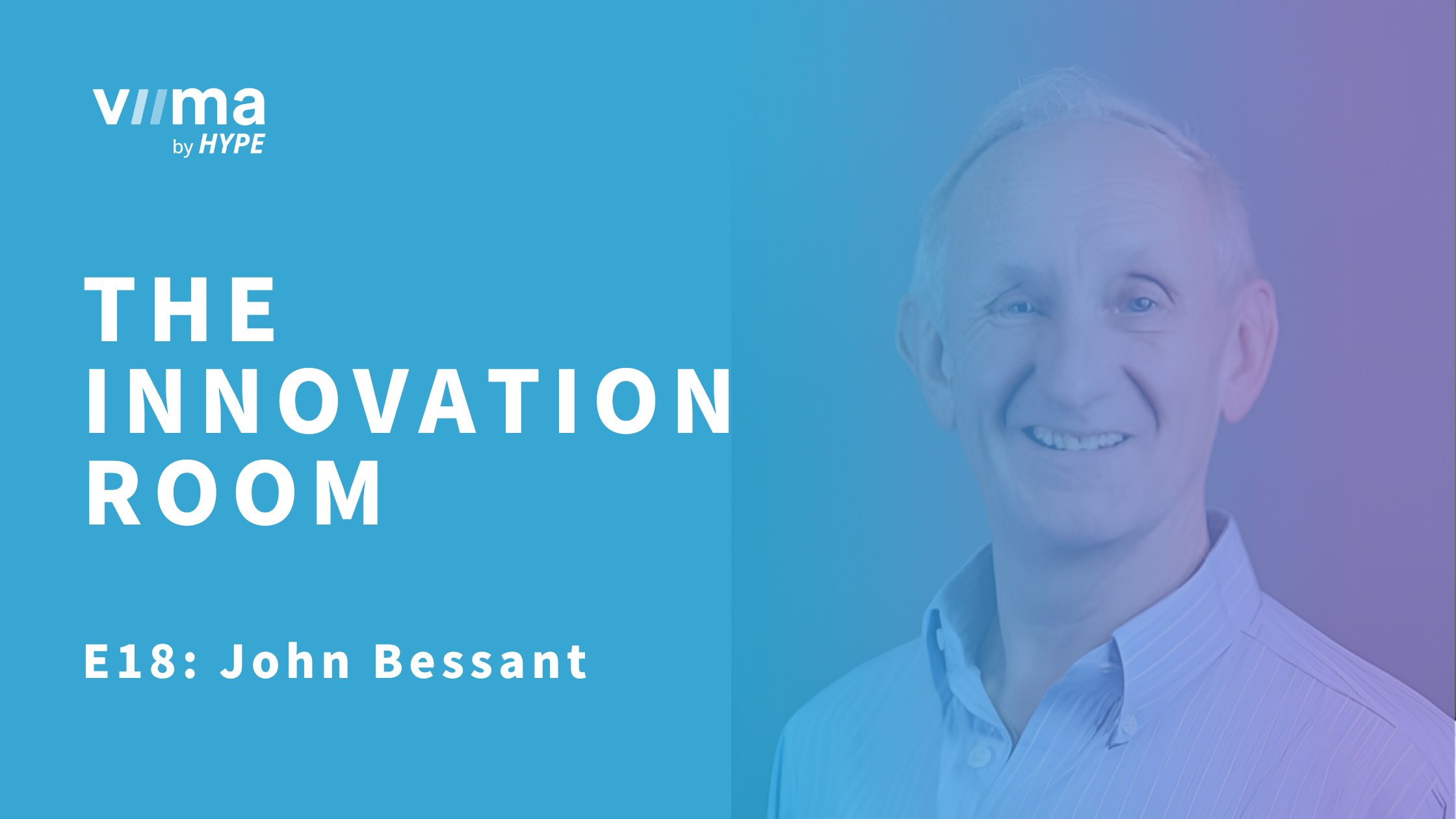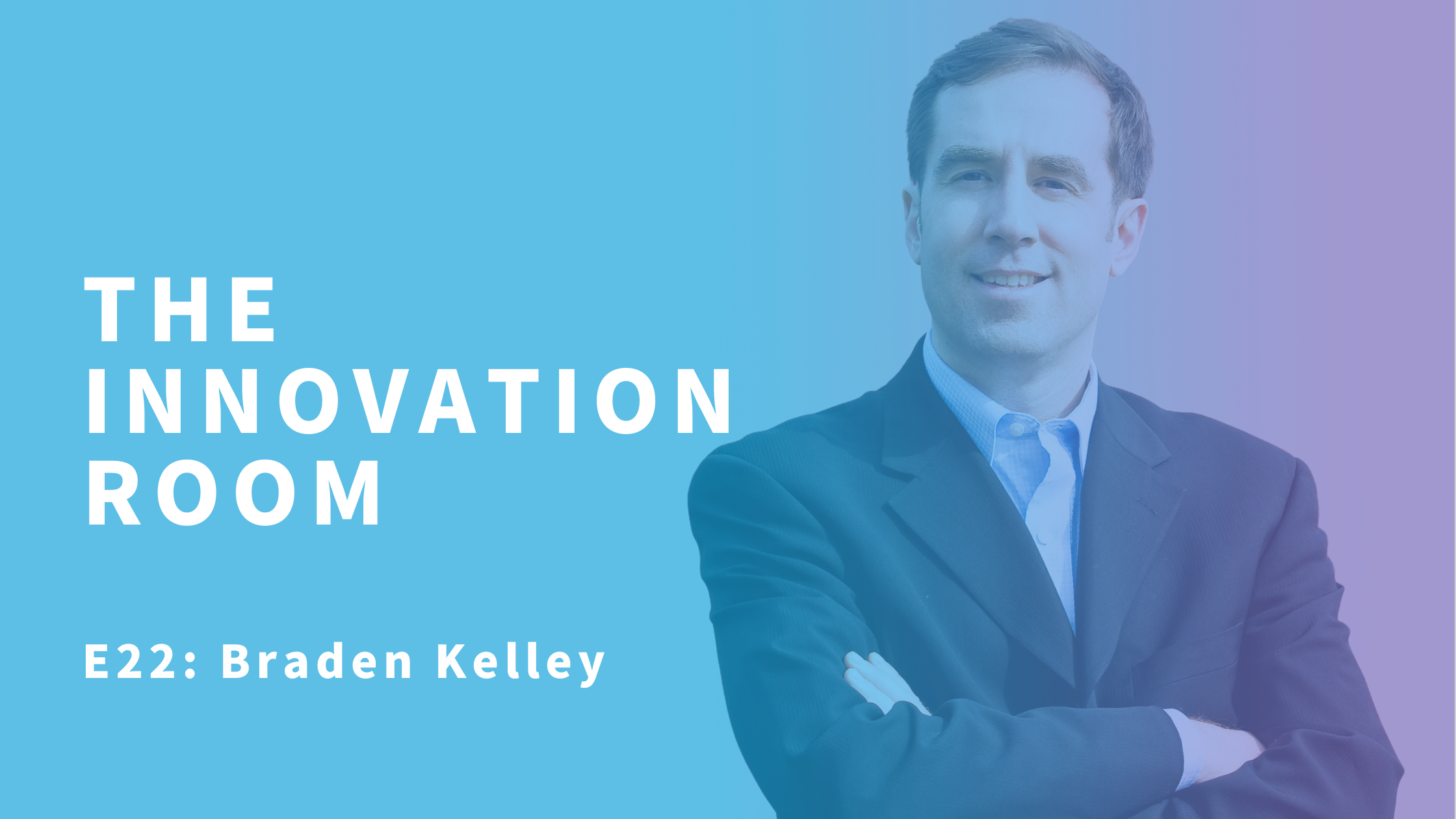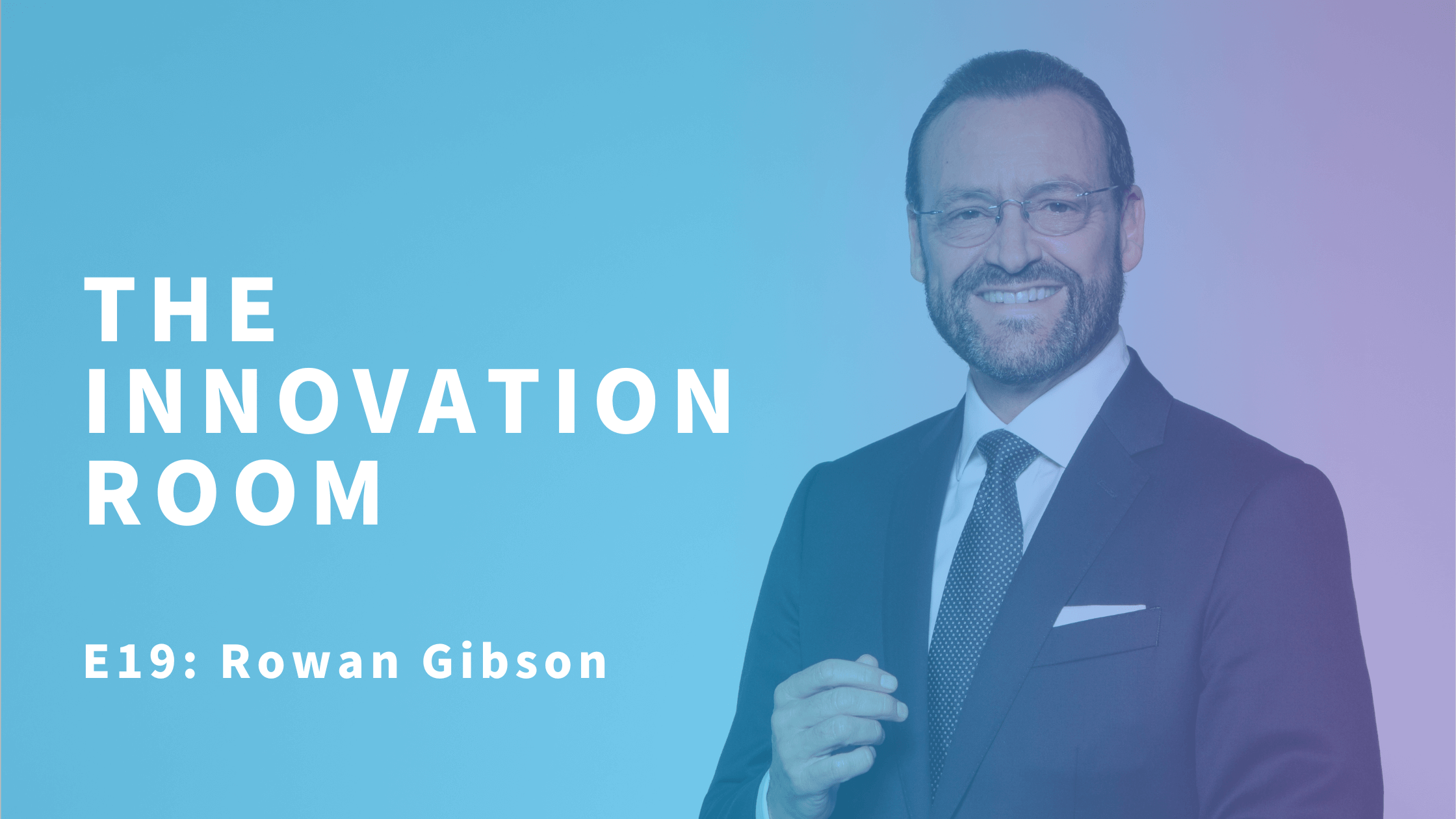Innovating Around What’s Pivotal with Stephen Shapiro
Stephen Shapiro started his innovation work over 25 years ago while founding and leading Accenture’s 20,000-person process and innovation practice. Since then, he has written seven books on innovation, including Best Practices Are Stupid, named the best innovation and creativity book of 2011 by Porchlight, and an international business bestseller.
In this conversation, Colin and Stephen talk about Stephen’s early experiences of working in the innovation field with Accenture, and how he came up with his approach and methods. He shares his thoughts on his upcoming book Pivotal: Creating Stability in an Uncertain World, and the state of innovation today.
Table of contents
Colin: I'd love to start our conversation with a little bit of history. I've known you for a while, but I've never asked you about your background and how you found yourself in the innovation industry.
Stephen: In the early 90s, I was involved in something called business process reengineering and I was one of the co-leaders of our global practice for that. I went around the world and helped companies optimize their processes. I realized that when companies optimize their processes, they often downsize their workforce. I knew this was happening, I had been doing this work for years, but didn't really think about it until one day. One of the projects I was working on announced that 10,000 people would lose their jobs. It was a large number, but it didn't impact me at first.
Then one night, I was watching a TV show about 3 executives who lost their jobs at that same company. The first executive was quite optimistic, he had an inheritance which he was living off, yet he did not have a job. The second executive was crying the whole interview because he was mowing lawns just to put food on the table to feed his family. The third executive committed suicide. And that was really heavy for me.
I went back into the office and asked the client whether that was true, which they confirmed, and it made me walk off the project. I liked my job, but I didn't want to help companies shrink. I wanted to help them grow.
Innovation wasn't a popular term back in the 90s, but that's what I focused on. That's all I've done for almost three decades now.
Colin: And how did you start to learn about this subject? It evolves, innovates itself, where did you start the learning process?
Stephen: First, I surrounded myself with a lot of smart people. I think that always helps because different people have different perspectives. We had 20,000 people in our process practice at Accenture. I was given a chance to work with them, and we created a day-long program on innovation, which we rolled out to all 20,000 people. We also wrote a book. In that same space, I was able to test concepts, see what worked and what didn't work.
A lot of my experience with innovation is less about being theoretical and studying and more about trying different things and finding what works. So, this space at Accenture was like a huge laboratory to experiment in. Almost everything I've done has been through real-world, hands-on application.
Colin: What was the biggest difference between what you expected and what you got from innovation?
Stephen: In the early to mid-90s, when innovation wasn’t that popular, most of us conflated innovation with either product development or creativity. It's related to both, but it's not the same. One of the things I’ve discovered is that an overemphasis on creativity kills innovation. That has been my biggest learning—the realization that it's not about quantity, but about quality.
Quality comes from identifying the real problem or opportunity that the organization needs to focus on and then reverse engineering solutions from that, as opposed to just coming up with thousands of ideas in brainstorming sessions that will never be developed, which many people mistakenly think constitutes innovation.
Quality comes from identifying the real problem or opportunity, then reverse engineering solutions, rather than generating countless ideas in brainstorming sessions which is often mistaken for innovation.
Colin: Boundaries help foster innovation, making it practical. It's funny you brought this up, it resonates very strongly with experiences I've had. Many clients just want as many ideas as possible, no boundaries, no box. But there is, and there should always be a box with a number and a time frame. It sounds like that's where your initial ideas, your methodologies started to formulate, from that trial and error.
Stephen: Absolutely. It started at Accenture when we launched the innovation practice. It was initially positioned under the cover of process improvement, but in reality, it was a process practice centered on innovation.
We rolled out Process Excellence Principles, and it was amazing to witness how within nine months we transformed a group that initially had no understanding of innovation into a group of 20,000 people who completed a full-day training program. Additionally, 40,000 people got copies of the book [Process Excellence Principles, internal release], and I still see those same people almost 30 years later, and they still remember the content. They remember the program and many people still have the materials because it was that relevant.
We did not focus on methodologies, but rather on fundamental timeless principles that worked 30 years ago and will hopefully work 30 years from now.
Personality Poker
Colin: I first heard the name Stephen Shapiro in reference to Personality Poker, and I think it was about 15 years ago. And I was fascinated. I've never actually had a chance to explore Personality Poker, so I would love to know more about it.
Stephen: Personality Poker is a card game that I developed nearly 20 years ago. It's basically a regular-looking deck of 52 cards. But then there are also words on each of the cards. There are, for example, a diplomatic card, a rational one, empathetic one, and so on. Each suit of the deck relates to the primary innovation steps.
The way the game works is people are dealt five random cards and the goal of the game is to get five cards with words that best describe how you see yourself. We go through a couple of rounds of training, and you trade trying to get rid of cards that don't describe you and collect the best-fitting 5 cards. You also go through a process of gifting so that others can see how they are perceived, which is always a lot of fun.

Most personality tests, if you want to call it that, focus on who you are. But the real value of personality poker is that you will have 5 cards in your hand, yet there's a 95% chance that you will be missing one suit. That missing suit is the main insight. You don’t have to have all of them in your hands, but it indicates what kind of person you need to work with.
So, in this game you get to see how people perceive you; you get to see how you perceive yourself, but you also get to see what's missing. You want to make sure that your team is playing with a full deck. You get to learn that not every person can fit every single style. So, who can you talk to? Who can you partner with?
Pivotal vs Pivot
Colin: I love this idea of being more diverse in terms of the types of people that we bring into the innovation process because we know that teamwork and diverse perspectives drive better solutions.
You've written several books and you've got a new one coming out Pivotal: Creating Stability in an Uncertain World. Tell us about that.
Stephen: The COVID-19 pandemic was a time when many organizations declared "pivot" as the word of the year 2020, but the concept of pivoting predates that. Businesses have been changing direction for decades. The problem I found is that organizations get so enamored with the new that they forget about the present. They focus so much on what's next that they neglect where they are today, and they emphasize what to change over what shouldn't change. I've noticed a recurring issue: burnout, confusion, and overwhelm from worrying about seemingly new opportunities that often turn out to be just distractions.
Now, whether it's the pandemic, supply chain issues, inflation, recessionary worries, or AI, we need to ask ourselves: Are these things opportunities or problems? Are these things issues we need to address, and how can we get the greatest leverage?
The whole point of Pivotal is to offer a different perspective. Instead of pivoting, which can feel like spinning around in circles, being pivotal means being of crucial importance. That's what I want my clients to be—crucially important to their customers, to their employees, and for employees to be crucially important to their employers.
Once we start thinking about what makes us special, our innate gifts, talents, skills, and differentiators as an organization, we can leverage that. Instead of changing direction or pivoting, we double down on what's most important. In essence, this is what the new book is about.
Colin: Many organizations don't spend enough time thinking about their core competencies and assets. They often confuse what they're good at with what they sell, which is not always the same thing. Do you see organizations starting to challenge themselves to understand their unique strengths?
Stephen: Many organizations are very product or service-oriented—they focus on what they sell or make. However, products and services can be replicated and have limited lifespans. For example, new phone models are released frequently. If we are product-centric, we're constantly chasing the next thing. If we focus on our capabilities, we can invest in areas that will lead to future products and services without needing to constantly reinvent.
Inside organizations, the way I see it work can be categorized into three types of activities (not departments or jobs, but activities that everyone does). These are:
- Support Activities: These don't create customer value but are necessary for internal operations, like payroll. Investing heavily in creating the best payroll system would not be a good investment.
- Core Activities: These create customer value but are not the main reason customers do business with you. If done poorly, they can drive customers away. Organizations often spend too much time on these, but it's better to either optimize them or partner with those who excel in these areas.
- Differentiating Activities: These make you special and unique, and you should focus most of your energy here. You should innovate where you differentiate and find different strategies for everything else in your organization.
It's a simple concept, but its implications for individuals, teams, and organizations can be profound.
Challenges for Innovators Today
Colin: I think for leadership this thinking should be much more comfortable because they're under pressure to as you say, always think that they must pivot, think about the future, to be agile. Instead, this approach suggests taking a break to first understand what the company is good at, its core strengths, and then doubling down on them. And then the other activities can be the things that they change. I think it is an interesting way of looking at it.
Let’s talk about the challenges that innovators face today. We live in an interesting period; we've been through probably more disruptions in the last 15 years than any of us would have expected. Where do you think the challenges are for corporate innovators today and what are the important things that should be addressed?
Stephen: I think the key challenge goes back to the idea of being pivotal. We need to take a moment to figure out what we do better than anyone else that the world values and that will stand the test of time. Identifying and investing in these areas can provide us with stability and sanity, which is crucial right now.
Take AI as an example. AI is a buzzword, and everyone wants to use large language models and other forms of AI. While AI is important and valuable, I would argue that for most organizations, AI is a core activity, not a differentiating one. What is differentiating today will likely become core tomorrow.

Many innovators and companies are shifting their strategies to become AI-centric, but if your sole strategy is AI, you become a commodity because everyone is doing AI.
Many innovators and companies are shifting their strategies to become AI-centric, but if your sole strategy is AI, you become a commodity because everyone is doing AI.
The critical part is to clearly identify what's core and what's differentiating. Getting clarity on this distinction will greatly benefit any organization.
Innovation in the Future
Colin: And thinking about the future, what gets you excited when thinking about innovation in five, 10 years?
Stephen: I am excited about the role of AI. While I don't think it's differentiating for most organizations, its potential is still exciting, massive, and game-changing at many different levels. Many technologies share that potential, so I'm enthusiastic about all of them.
However, as we delve deeper into technology, human importance will increase, not decrease. Embracing this understanding, we can leverage technology to free us up for higher-level thinking. This recognition makes it a powerful and exciting time.
When companies understand that people will always be their greatest assets and that with the right capabilities and skills, they can invent whatever is needed next, it becomes incredibly exciting.
Learn more about Stephen’s work at Stephen Shapiro's website.
Find more information about Personality poker at https://www.personalitypokerstore.com/
Connect with Colin and learn more about Hype Innovation consultants here.
You can listen to The Innovation Room Podcast on Apple Podcasts, Spotify, and YouTube.
Join the 100k+ innovators reading our blog!


.png?width=50&height=50&name=Untitled%20design%20(1).png)

.png)

